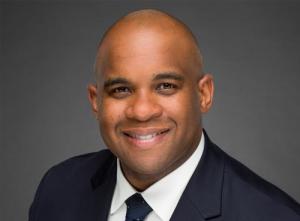Diversity This Decade
Willie Phillips is a NARUC Board Member and Chair of the Public Service Commission of the District of Columbia.
Black History Month, has, well, a history. Historian Carter Woodson and minister Jesse Moorland in 1915 founded a group known today as the Association for the Study of African American Life and History, which sponsored a national Negro History week in 1926, choosing the second week of February to coincide with the birthdays of Abraham Lincoln and Frederick Douglass.

President Gerald Ford officially recognized Black History Month in 1976. President Ford's hallmark energy legislation in 1975 was in reaction to the OPEC oil embargo. Older folks reading this remember odd-even gasoline rationing, so if the last digit on your license plate was odd, you could buy gas only on odd-numbered days in lines often around the block. He signed the Energy Policy Conservation Act, which among others established the Strategic Petroleum Reserve, energy conservation program for appliances, and Corporate Average Fuel Economy standard, better known as CAFE.
PUF reached out to a leader in the energy and utilities world, Willie Phillips, to talk about Black History month. He was appointed Chair of the District of Columbia Public Service Commission in 2018, serves on NARUC's board of directors, and is President of the Mid-Atlantic Conference of Regulatory Utility Commissioners.
PUF's Steve Mitnick: Why is Black History Month important?

